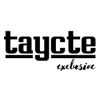Perdue Farms, one of the nation's largest chicken processors, is about as close to a family dynasty in the business as they come. Jim Perdue, the 70-year-old chairman of Perdue who has been in the role since 1991, is the grandson of founder Arthur Perdue who founded the Maryland company a hundred years ago. Now, the company has five fourth-generation family members involved with the business.
While the Perdue name has remained the same, the poultry giant has been anything but sedentary as it has moved swiftly to compete with other meat and poultry heavyweights such as Tyson Foods, Sanderson Farms and JBS USA and respond to changing consumer preferences over how and where their food is produced.
"We've changed dramatically in the last 10 years. My dad passed away in 2005, and I think he'd be surprised to see the way the company looks now," Jim Perdue said. "One of the legacy's that [my father] Frank Perdue taught us all is you better listen to the consumer. You better make relevant products that are important to them. And if you do, you'll survive, you'll be okay as a company."

Perdue, which has 21,000 employees compared to about 100 as recently as the 1960s, was the first poultry company to remove antibiotics from its chicken more than 15 years ago after consumers started expressing concern about the medicines. It also claims to be the largest producer of organic chickens nationwide.
The company's Harvestland brand gives chickens access to light and the outdoors, which Perdue believes might help create more tender and better-tasting meat. It recently converted 750 farmer-owned chicken houses to include these attributes, about 25% of the total in its network, with a plan to continue conversions in its facilities that house the more than 650 million chickens the company processes each year.
Decades ago, the primary concern for consumers were the yellowness of the chicken skin, demand for plumper breast meat and broader quality. Those characteristics are largely gone today as chicken sold in stores usually has the skin removed, chicken breast sizes are uniform and quality is high as retailers who sell the product with their names on it are careful about protecting their own brands, Perdue said.
Instead, this has been replaced by shoppers who are concerned about what the chickens are fed, how they are raised and what goes into the products such as artificial flavors, colors or preservatives.
"A lot of the things we are doing today is around one key word: that word is transparency. We've got to be totally transparent with this millennial, which are now the dominant consumer group," he said.
While Perdue hasn't strayed from the chicken it is synonymous for, the company has struck a couple of deals in recent years to expand its reach into other proteins like beef, pork and lamb with premium attributes.
In 2015, Perdue purchased Niman Ranch, increasing its market share in antibiotic-free products and adding grass-fed beef and pasture-raised pork to the fold. Premium meats are the company's fastest-growing business and currently responsible for about 10% of sales, Perdue said. Its most recent acquisition was Maxi Canada in late 2019, a frozen nugget manufacturer that recently added a product containing both chicken and vegetables.
These acquisitions, and innovation within its own product offerings, have enabled Perdue to achieve a larger presence in premium products compared to its competitors who have largely skewed toward mainstream, mass-produced items, Perdue said.
"It's about premium protein. Tyson is not into premium protein. JBS is not into premium protein," Perdue said. "There is plenty of room to grow that [premium] business and stay out of the way of these big commodity beef and pork producers."

Perdue also ventured into the suddenly competitive plant-based space last year with the launch of its hybrid Chicken Plus line made with cauliflower, chickpeas, plant protein and white meat chicken. Perdue said the offering was the company's first product in its history to receive national distribution when it debuted. Despite launching a year ago, Chicken Plus makes up about 20% of the pre-cooked, non-organic frozen nuggets, tenders and patties, sold by the company.
The fourth-largest U.S. chicken processor is plotting out ways to grow Chicken Plus. Perdue said the company could eventually introduce an entirely plant-based variety depending on consumer demand, but for now it's focusing on blended offerings. The faux chicken space is pretty crowded already. Conagra Brands' Gardein, Tyson Foods' Raised & Rooted, Alpha Foods and Nestlé's Sweet Earth are among the companies with products already on the market.
"It will be competitive. There is no doubt about it. We know that. So you have to have something that offers something different," Perdue said. "Because we have our [traditional meat] products out there right now, it does give us a leg up to go out and add on to the in-the-meat-case product lines."
As food and beverage manufacturers scramble to keep up with demand during the pandemic, many companies now must also contend with coronavirus outbreaks in their factories. Perdue is not immune to these challenges.
A Perdue plant in Delaware briefly closed in late March after workers were found to have contracted the coronavirus. Around the same time, The Wall Street Journal reported two dozen workers at a plant in Georgia walked off their jobs after complaining Perdue wasn't paying them adequately or doing enough to stop the spread of the coronavirus. Most employees quickly returned to work after talking with management.
Perdue, which already had an eight-hour shift each day to clean its processing plants before the pandemic, increased cleaning in other areas of their facilities and implemented temperature checking, mask wearing and social distancing practices. Plexiglass dividers were installed between people and frequently used doorknobs that workers touched were removed. Wellness centers, which are free for employees and their extended families, had longer hours.
"It's impossible to try to provide food and do it totally without a problem. It's just very difficult to do," Perdue said. "This was all learning on the fly here."
Despite the recent challenges because of the coronavirus and changing consumer habits, Perdue is optimistic he has positioned the company for future success whenever he decides to step down as chairman. "I'm just the steward," he said. "My job is to just carry on during my time and then pass [the company] on."























